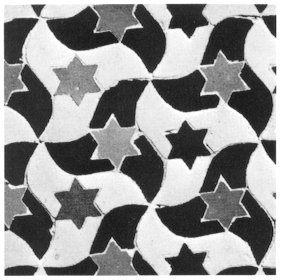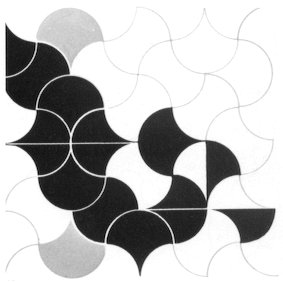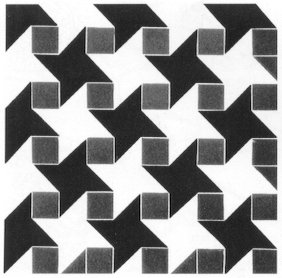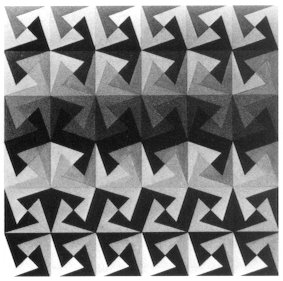|
(ii) Non-concrete shapes The pursuit of a shape which fills all space with one kind of shape, without any intervals will affect equal-shape divisions. These divisions were discussed previously. Let's consider the cases in which a space is filled by more than two kinds of shapes. Figure 199 represents an Arabian mosaic which uses two kinds of surfaces. These surfaces are painted using different colors. However, the outlines are surrounded by curves with shapes similar to a bird. In a word, the patterns and colors are different, but the outlines are the same. Figure 200 is composed of three kinds of units, and
if we focus the outline shapes, it is equivalent to the KOHSEI (Basic
Art & Design) of two kinds of the units filling all the space. Figure
201 is a KOHSEI (Basic Art & Design) packing four kinds of units.
If we look carefully at the KOHSEI (Basic Art & Design), it
is made of many pairs of half a ginkgo leaf, and it is a configuration
made by combining these differently colored shapes.
|



